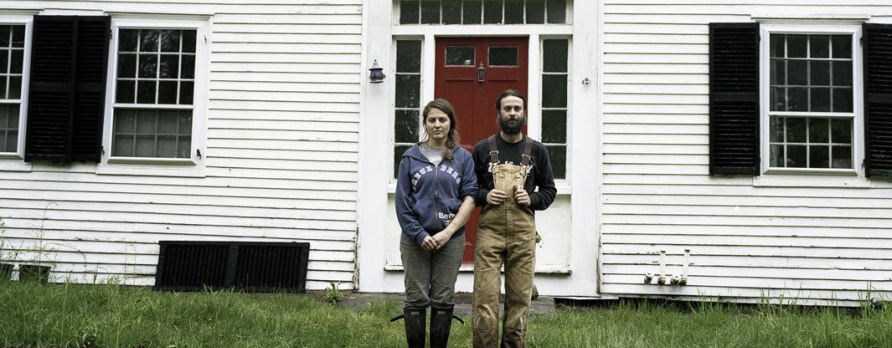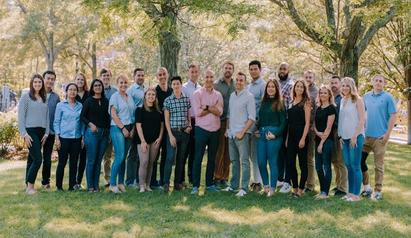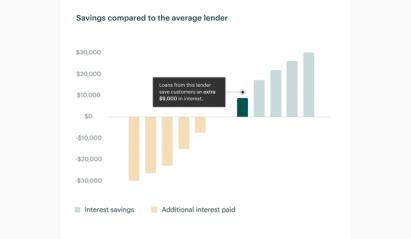An Interview With Keller Williams Andover CEO Michael Hvizda
Written by:
Patrick Boyaggi
Patrick Boyaggi
CEO an Co-Founder
Patrick is the Co-Founder and CEO of Own Up. He has a wealth of experience and knowledge as a mortgage executive.
See full bio

As with superheroes, an agent’s origin story often tells of struggle that led to growth. We recently spoke with Michael Hvizda, the CEO of Keller Williams Andover, about his entrepreneurial beginnings, including the failures that enabled him to thrive.
Own Up: Can you tell us about how you first got into real estate?
Michael Hvizda: Actually my path to real estate started with ice cream. *laughs* I had always known I wanted to do something entrepreneurial. When I was 20 years old and home from college for the summer, I saw an ad looking for someone to drive an ice cream truck. I always wanted my effort and energy to be in direct relationship to my pay, and something about that ad drew me in. So I went and I sat down and introduced myself. And they said, sorry, we don’t have a position for you.
OU: That’s a cold rejection. How did you handle it?
MH: I told them I wanted the job. I told them that someone’s going to want a day off or need assistance, and that I’ll come back tomorrow and the next day, too, to check. In seven days I had my own truck to drive seven days a week. That summer I was a top producer, and the next summer, too. Eventually, I took over a branch of that business and grew it from 8 to 18 trucks.
OU: Sounds like you took off! Why did you give up a successful business to pursue real estate?
MH: I wanted to build something bigger. Sure, parts of the ice cream business were great—though I worked seven days a week for six months a year, I had the next six months off. So I skied at Lake Tahoe all winter. I taught surf lessons in the Caribbean and traveled through Costa Rica. But ultimately I knew I wasn’t going to take my family to that next level of freedom, of having a legacy of wealth.
I told him that I’m in a real dark place in my life, but that I believe in this company and its model. I told him that if he pointed me down the path of success, I’d run down it faster than anyone has ever run down it before.
Thankfully, I started to develop some strong relationships in real estate through the ice cream business. In fact, the person who gave me my job—actually, he didn’t give me my job that first interview—had gotten into real estate development. And that was the first time it clicked: Here’s someone doing what I’m doing, but they’re transitioning to real estate because it has a higher potential to earn. I was in ice cream for 12 years. After 11, I began transitioning to real estate in part by riding my colleague’s coattails.
As I began my real estate career, I met with a lot of brokerages. When I first met with Keller Williams, I knew I found the company that shared my vision. I liked that they are a profit sharing company, so every agent has a stake in the company. And they emphasize process with a culture of growth and of building teams. It’s about more than being a solo practitioner. It’s about building a business.
OU: The appeal of high earnings attracts a lot of would-be agents, but many don’t last. When did you know that you would build a lifelong career in real estate?
MH: It actually took a spectacular failure. About eight years ago my wife and I bought a farm. We grew vegetables, we raised pigs and chickens and ducks, and we got a lot of accolades from the community. Everything was organic and clean and raised in an ideal way. But while we were being held up on a pedestal by our friends and neighbors, we couldn’t turn a profit. We couldn’t even afford to eat the produce we were selling at the market.
Then, my wife got a severe case of Lyme disease, and we invested our money in getting her healthier. Life really brought us to our knees at that moment. Our old New England farm house was falling apart. We were selling meat and produce out of the freezer in the winter. But looking back, I’m reminded of what my parents always said: You have to fail forward.
So I went to speak with my Team Leader at Keller Williams. I told him that I’m in a real dark place in my life, but that I believe in this company and its model. I told him that if he pointed me down the path of success, I’d run down it faster than anyone has ever run down it before.
OU: How did he point you in the right direction?
MH: He suggested that I take a training class KW offers called BOLD, which stands for Business Objective: a Life by Design. I came home from the first day of class and told my wife that, with her help, we’re going to take this to the next level. Those first weeks I made 200-300 phone calls a day. And sure enough, In my first three months I put 25 listings online. That was the start of it, and we’re still growing today. This year, our mission is to help 100 families make a positive transition through real estate.
OU: I love that you describe it as a mission. Where do you think this mindset of being a mission-driven agent came from?
MH: Where it really came from is the farming. My wife and I realized that whether you’re growing food or building a development or pitching a tent, it all starts with real estate. So, to really change the community, we better be on the bottom floor.
The fact is that a community-first mindset is good for business, and my wife and I apply it across our real estate efforts. As lead agent of the Hvizda Team, a real estate group based at Keller Williams in Concord, New Hampshire, my wife knows that both buyers and sellers want to work with an agent who champions the community. Buyers know a strong community will raise the value of their home, and sellers know that local expertise—beyond just market data—is essential to a successful sale.
I bring the same same energy to my work as the CEO of Keller Williams in Andover, Massachusetts. By drawing on my own experiences while leveraging the proven structures and resources provided by KW, I help my agents strengthen the communities they serve. That, in turn, helps them grow their business.
OU: This all sounds great. What do you say to the skeptics, or to those jaded with the industry, who believe agents only look out for themselves?
MH: A lot of stories come to mind, but I’ll share one in particular. When I first got into the business, I sent out branded postcards to hundreds of people. A woman named Tanya (name has been changed) was the neighbor of a recipient, and somehow my card wound up in her hands. She called us up and said she was looking to sell her house.
But this house was unique: It had lush gardens with almost 35 years of care behind them. It was producing a ton of food. But it wasn’t a farm, it was residential. We knew it wouldn’t be easy to sell the house, that it would take a special buyer. Tanya, though, shared the same values that we did. We decided to do whatever it takes to help her out.
OU: Was it a difficult sale?
MH: We had this listing for nearly 2 years! But we kept reaching out to our network and our community. One day, we spoke with a couple who had seen over 50 houses. Their agent was telling them to compromise, that they would never find their dream home. We asked them what they were looking for and, I kid you not, they started describing Tanya’s house.
My wife and I just looked at each other in shock. Then I printed out what information we had and shared it with the couple. We arranged a showing and, sure enough, we got the transaction done. Since we sold her home, Tanya has given us fifteen referrals, and each of those have led to new business as well. And because of the relationships we built, the buyers and Tanya and my wife and I still get together for dinner at least three times a year.
OU: Wow! That’s a terrific story, and proves how community and business go hand in hand. Any last thoughts?
MH: The success of Tanya’s deal reminds me of a favorite quote, which I think applies to any entrepreneur and which I apply to my business every day: People don’t care what you know until they know you care.


